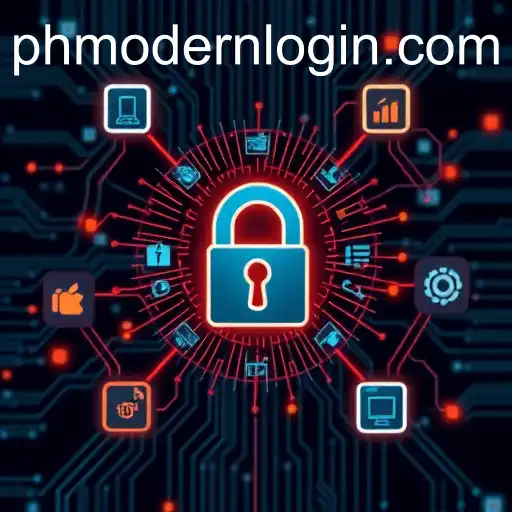
Dive into the Exciting World of WonWonWon: The PHMODERN Sensation
Explore the fascinating world of WonWonWon, a game that combines modern thrill with strategic thinking, under the backdrop of current events.
Home » Privacy Policy
In the rapidly evolving digital landscape, the concept of privacy has become increasingly significant for individuals and organizations alike. A privacy policy serves as the foundation for how companies manage and protect the personal data of their users. As more entities embrace the digital sphere, the need to understand and implement effective privacy policies becomes paramount, especially in relation to the term 'PHMODERN'—an emerging keyword in modern privacy discussions.
Privacy policy is a legal document that discloses how an organization collects, uses, shares, and protects the personal data of its users. It's a reflection of a company’s commitment to safeguarding information and a crucial tool for building trust with consumers. With digital interactions becoming the norm, understanding the subtleties of privacy policies is essential for both companies and users.
Every privacy policy, regardless of the organization's size or industry, should contain several core elements:
The term 'PHMODERN' represents a contemporary approach to privacy that aligns with today's technological advancements and consumer expectations. It encapsulates the transition from traditional privacy frameworks to more dynamic, user-centric policies. This shift is critical as businesses strive to maintain transparency and foster greater trust with their users.
PHMODERN privacy policies are designed to adapt to the latest technological innovations such as artificial intelligence, big data, and the Internet of Things (IoT). These technologies introduce new avenues for data collection and usage, necessitating more adaptive privacy policies that can effectively address potential risks and challenges.
For instance, AI algorithms require vast amounts of data to function effectively, posing potential risks to user privacy. A PHMODERN approach ensures that privacy policies are equipped to handle such complexities by incorporating principles of data minimization and consent management from the ground up.
One of the cornerstones of PHMODERN privacy policies is transparency. Consumers today demand greater clarity in how their information is used, stored, and shared. A transparent privacy policy not only lists rights but actively educates users about data lifecycle processes and empowers them to make informed decisions regarding their personal information.
Furthermore, empowering users to have control over their data aligns with the ethical guidelines governing digital privacy. This approach establishes a balance between providing companies with valuable user insights while respecting individual rights.
Despite the benefits, transitioning to a PHMODERN privacy framework is not without challenges. Companies must navigate complex legal landscapes, varying global regulations such as GDPR, and the technical hurdles of integrating advanced privacy measures into existing systems.
The varying definitions and expectations around privacy across different cultures and countries add another layer of complexity. To address this, organizations must adopt a flexible approach to policy development, one that considers both local compliance requirements and broader ethical principles.
Educating users about their privacy rights and how privacy policies function can enhance the effectiveness of PHMODERN practices. Such educational initiatives can be implemented through clear communication strategies and easily accessible information that breaks down complex legal jargon.
As technology continues to advance, the concept of the PHMODERN privacy policy is bound to evolve. Companies must remain vigilant and proactive in adapting their privacy policies to new threats and opportunities. A forward-thinking approach will not only comply with legal standards but also set industry precedents in privacy protection.
This ever-changing digital environment requires a commitment to continuous improvement in privacy strategies. The PHMODERN approach acts as a blueprint for companies aiming to secure their future while respecting and prioritizing user privacy.
PHMODERN privacy policies represent a paradigm shift in how organizations perceive and implement privacy practices. By focusing on transparency, adaptability, and user empowerment, these policies foreground the importance of privacy in the contemporary digital age. As society becomes increasingly interconnected, the role of a robust privacy policy cannot be overstated, ensuring that the digital economy thrives with integrity and trust between organizations and their users.


Explore hundreds of slot games, live casino tables, and unique fishing games. We regularly update our collection with new releases, so there’s always something fresh to try.
Enjoy generous welcome bonuses, free spins, and daily promotions. Whether you’re a new player or a returning member, we offers plenty of ways to boost your winnings.
We’re here to help whenever you need it. Our customer support team is available around the clock to assist with any queries or issues.
Take the fun with you! Our platform is fully optimized for mobile devices, allowing you to play on your smartphone or tablet without compromising quality
Step into the exhilarating world of card games with PHMODERN! From timeless classics like Pok Deng and Tongits to the fast-paced excitement of Color Game and Hoo Hey How, our diverse selection captivates every player.
In collaboration with top providers like TP, JILI, KM, FTG, and RICH88, we deliver a stunning array of games that promise nonstop entertainment. Furthermore, each game offers more than just strategy and skill—expect heart-racing action and mind-bending challenges that will keep you engaged at every turn!
PHMODERN is excited to offer an exclusive PHP 66 free bonus to kickstart your card gaming journey! Explore our vast library of card games, featuring both beloved classics and exciting new releases that promise endless entertainment.
Use this special bonus to enhance your gaming experience and discover everything PHMODERN has to offer. Whether you’re a seasoned player or just starting, our platform caters to all skill levels. Moreover, enjoy expert tips, strategic insights, and thrilling opportunities to win big!

Explore the fascinating world of WonWonWon, a game that combines modern thrill with strategic thinking, under the backdrop of current events.

Explore the captivating game FORTUNEKOI, its intriguing gameplay and modern appeal through the lens of the PHMODERN trend.

Discover SolarKing, an innovative game that captures modern advancements across strategic gameplay and immersive storytelling.

Explore the captivating universe of GoldenOx, a cutting-edge game inspired by current global trends and the keyword PHMODERN, offering an enthralling introduction, intricate description, and comprehensive rules.

NIGHTMARKET, an enthralling new game with the mysterious keyword PHMODERN, offers players an immersive experience blending strategy, mystery, and real-world events.

Dive into the thrilling universe of HotBurningWins, a captivating game that combines the traditional essence of gaming with contemporary elements.

PHMODERN – The Ultimate Destination for Gaming Enthusiasts Worldwide
